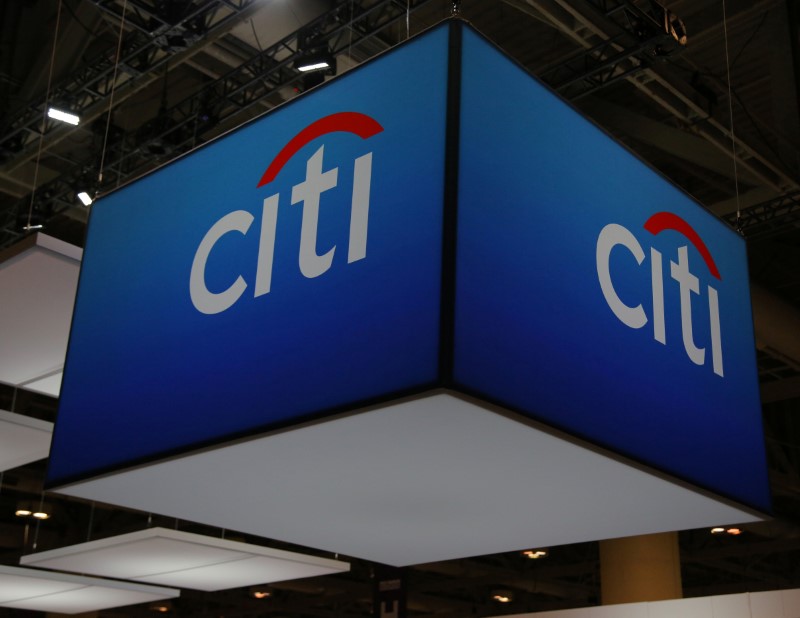This post was originally published on this site
https://i-invdn-com.akamaized.net/trkd-images/LYNXMPEG0D0WV_L.jpg © Reuters. The Citigroup Inc logo is seen at the SIBOS banking and financial conference in Toronto
© Reuters. The Citigroup Inc logo is seen at the SIBOS banking and financial conference in Toronto(Reuters) – Citigroup Inc (NYSE:) beat analysts’ estimates for fourth-quarter profit on Tuesday, boosted by growth in its credit card business and a jump in trading revenue.
North American branded cards, which account for a majority of consumer banking revenue, continued to be a bright spot for the bank, clocking double-digit revenue growth for the second straight quarter. Revenue grew 10% from a year earlier.
Citi has been leveraging its robust card business to help grow deposits by pitching checking and savings accounts to card holders.
Trading revenue rose nearly 31% as markets steadied during the last three months of 2019. The gains were driven by a 49% surge in fixed-income trading that offset a 23% decline in equities trading, where weak performance in derivatives weighed on results.
In the year-earlier quarter, the bank’s equities trading business came under pressure from a spike in volatility, while a widening of the yield spreads weighed on the fixed-income business.
Citi also reached a key profitability target. The third-largest U.S. bank by assets hit a return on tangible common equity (ROTCE) of 12.1% for 2019, above the goal of 12% it promised investors for the year.
ROTCE is a widely watched measure of how well a bank uses shareholder money to generate profits.
The lender’s shares were up about 1% in premarket trade.
Citi continued to add loans and deposits in the most recent quarter, reflecting continued growth in the economy.
Total end-of-period loans grew 2% and deposits jumped 6%, excluding foreign-exchange fluctuations. Credit costs jumped 15%.
Net income applicable to common shareholders rose to $4.98 billion, or $2.15 per share, in the three months ended Dec. 31, from $4.31 billion, or $1.64 per share, a year earlier.
Excluding the impact of a tax benefit, the bank earned $1.90 per share. (http://citi.us/2tZ7XOu)
Revenue, net of interest expense, rose about 7% to $18.38 billion.
Analysts had expected a profit of $1.84 per share and revenue of $17.86 billion, according to IBES data from Refinitiv.
Fusion Media or anyone involved with Fusion Media will not accept any liability for loss or damage as a result of reliance on the information including data, quotes, charts and buy/sell signals contained within this website. Please be fully informed regarding the risks and costs associated with trading the financial markets, it is one of the riskiest investment forms possible.

